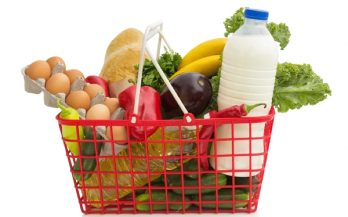


2nd World Summit for Social Development Solutions Session
- Global
This Solutions Session side event explores inclusive innovation as a practical tool for reaching the most vulnerable and eradicating poverty, focusing on how locally-driven, participatory approaches can enhance the quality and impact of development interventions. Designed as an interactive and participatory experience, the session will give participants firsthand exposure to how inclusive innovation operates in real-world contexts.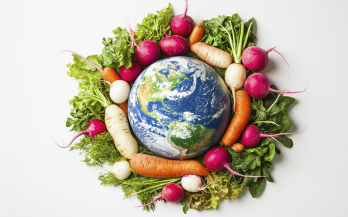
Reconciling Nutrition and Sustainability: A New Tool for Nourishing People and Planet
When we tell people we analyze the environmental and nutritional impacts of food, we're almost always met with the same question: “So, what should I eat?” It's a deceptively complex question that highlights one of the greatest challenges facing our food systems today—how do we nourish a growing global population while protecting the planet we all share? This challenge has driven us at the Global Alliance for Improved Nutrition (GAIN) to develop a new approach that we're excited to share in our latest briefing paper, "Nourishing People and Planet: Enviro-Nutritional Insights into Local Foods for Policy, Programmes, and Industry."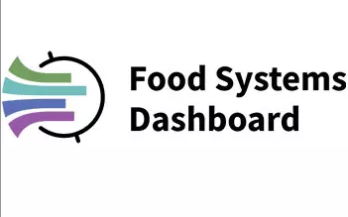
The Food Systems Dashboard: Then and Now
Five years ago, fragmented food systems data made it challenging for stakeholders to take away meaningful insights for evidence-based decision-making. Today, the Food Systems Dashboard has transformed the data landscape and become an indispensable resource for food systems stakeholders worldwide, providing nearly 200,000 users with comprehensive, visual data and expert analysis that can help turn data into action and insights into impact.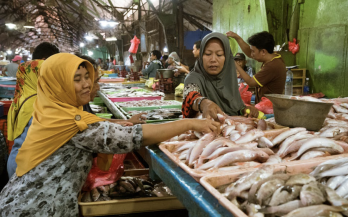
GAIN Briefing Paper n°16:NOURISHING PEOPLE AND PLANET ENVIRO-NUTRITIONAL INSIGHTS INTO LOCAL FOODS FOR POLICY, PROGRAMMES, AND INDUSTRY
- 29/09/2025
The world is currently facing two interconnected and severe crises: widespread malnutrition and environmental degradation. Food systems are central to both issues, as they are responsible for a significant portion of greenhouse gas emissions, natural resource depletion, and environmental damage, while simultaneously feeding billions of people. Diets are a crucial link between human and planetary health and have been identified as a key lever to address both the climate and malnutrition crises. However, there are inherent trade-offs between nutritional and environmental goals, making it difficult to find solutions that simultaneously improve both outcomes. This paper introduces nutritional Life Cycle Assessment (nLCA) as an evidence-based tool to guide policy, programmatic, and industry decision-making, and demonstrates how nLCA can provide actionable, context-specific insights that help reconcile (often competing) nutritional and environmental priorities.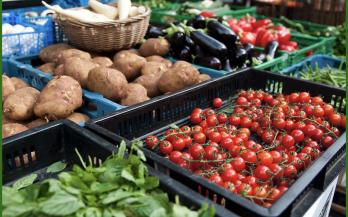
Mechanisms Supporting Policy Coherence In Uk Food Strategies
- 24/09/2025
Food policy has been an active area in the UK throughout 2025. Three of four UK nations having recently published food strategies and plans, with another in preparation, all within a changing geopolitical context. Against this backdrop, this working paper highlights key gaps and potential actions for fostering coherence within food strategies and governments in the UK based on an analysis of UK food strategies using a new tool, the Food Systems Policy Coherence (FSPC) Diagnostic tool. This tool, composed of two modules, aims to provide a simplified and standardised approach to measure policy coherence.
GAIN at Stockholm Food Forum
- Global
Stockholm Food Forum: Engage. Act. Transform. The Stockholm Food Forum, convened by EAT, is a carefully curated event open to up to 700 participants by invitation only. This results in a gathering of global thought leaders from science, politics, business, civil society and beyond.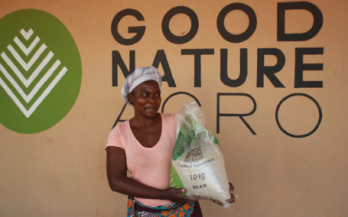
A Recipe for Impact? Using End-User Surveys to Understand the Impact of Nutrition-focused Investment
Investing in companies that support nutritious food value chains could be a triple win for farmers’ livelihoods, their nutrition, and that of the end consumers of their products – but how do we know it actually works? Over the past few months, the Nutritious Foods Financing Facility (N3F) has been working with our first few investees and the leading impact-measurement specialist 60 Decibels to try and find out.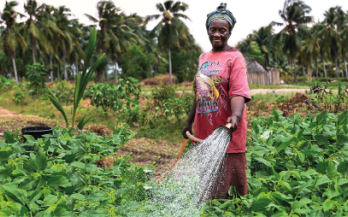
I-CAN Playbook: Integrating Nutrition into Nationally Determined Contributions (NDCs)
- 09/09/2025
I-CAN presents a new playbook offering step-by-step guidance to embedding nutrition-sensitive ambition and action into nationally determined contributions (NDCs). Drawing on I-CAN experience support climate-nutrition integration in different countries, it highlights practical entry points, resources, and provides policy examples to create nutrition–climate win-wins across food systems, health, agriculture, and social protection. By aligning nutrition with climate goals, countries can strengthen food and health systems, advance progress on the SDGs, and pursue the Paris Agreement 1.5 °C target.